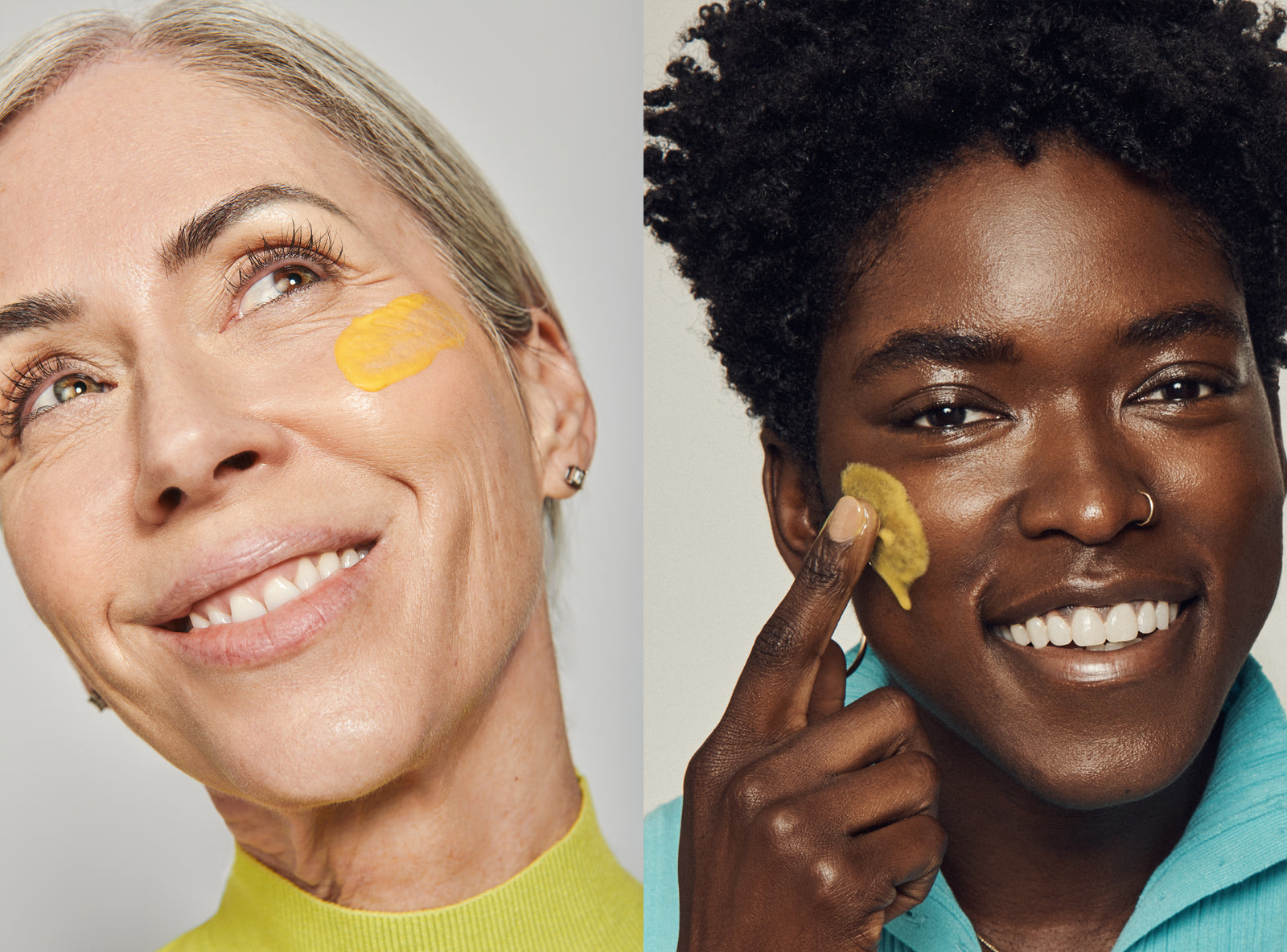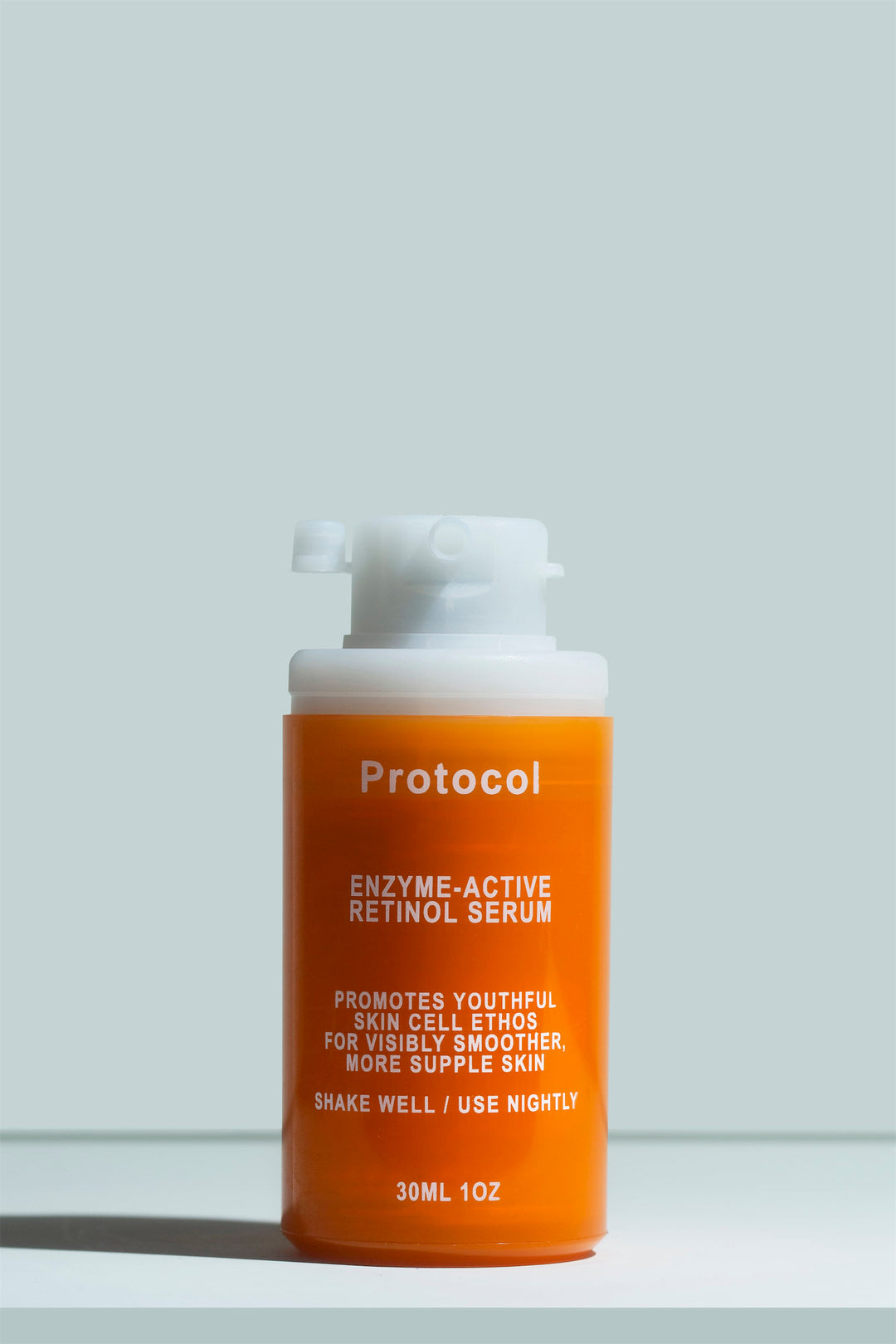At What Age Should You Start Using Retinol?

Are you too young to use retinol?
Did you miss the mark, and are you too old to start retinol by now?
Retinol is one of the few skincare ingredients proven to have major anti-aging effects. It boosts collagen and fades wrinkles, especially in its more bioavailable form as retinaldehyde.
When an ingredient is so powerfully anti-aging, it’s reasonable to wonder if it’s safe at every age. Retinol’s ideal age range depends on a lot of factors, starting with your unique skin concerns. In this post, we’ll help you figure out if you’re at the right age to start using retinol.
What is retinol?
Retinol and its relatives (known collectively as retinoids) fall under the vitamin A umbrella. In skincare, retinoids are considered the anti-aging superstars. When applied topically, retinoids act directly on skin receptors to stimulate new, healthier skin cell production in parts of the dermis and epidermis.
This makes retinol an all-around skin booster that can help with every skin concern. It’s famous for helping to fade fine lines and wrinkles, but it can also help unclog pores and fade discoloration.
The most famous retinoid in skincare is retinol. When applied to the skin, it converts into retinaldehyde, which then converts into retinoid acid. During this process, it loses quite a bit of its potency and is generally considered quite weak (and less effective for those with acne-prone skin).
Some retinoids, like prescription retinoic acid and over-the-counter adapalene, are considered acne medications since they help reduce breakouts.
In the cosmetic realm, the most powerful OTC retinoid is retinal, since it only needs to undergo one conversion to become retinoic acid. The conversion preserves a maximal skin impact while significantly reducing the risk of irritation.
At what age is it best to use retinol?
There is no magical age where it’s suddenly beneficial to use retinoids. Instead, consider whether you have a skin concern that a retinoid could address.
Sometimes, it might make sense to start using retinol at a young age. If you’re a teenager experiencing acne, closed comedones, acne scars, or hyperpigmentation, then it’s perfectly reasonable to give retinoids a try.
If you’re interested in anti-aging benefits, it might make sense to start later in life.
The best age to start using retinol for anti-aging is around mid-twenties. Our skin reaches its peak collagen production rate in our early 20s, and then the process begins to slow down in our mid-to-late 20s. From then on, the skin aging starts to become progressively noticeable. Excessive sun exposure, smoking, and other health or lifestyle factors can also speed the visible aging of the skin.
It’s not likely that retinol will boost your skin’s collagen production if it’s already at its peak. It makes the most sense to start using retinol right as your collagen production starts to slow down, so you can maintain it effectively for longer.
Unfortunately, we don’t have such long-ranging studies on retinoids yet. The people who have used retinoids for over a decade might look great, but they often take additional anti-aging measures, like using sunscreen consistently or getting the occasional med spa treatment.
Even so, the science suggests that retinoids keep working and that their collagen-boosting effect lasts even after you take a break. In other words, you can take skincare breaks instead of using retinoids consistently, and potentially still slow down your skin’s visible signs of aging.
Is it bad to use retinol at a young age?
There aren’t any specific risks associated specifically with using retinol at a young age, beyond the normal side effects. Retinoic acid, a more direct-acting prescription retinoid, has even been studied in children as young as 9. That said, most dermatologists will only prescribe it to patients 12 years old and older.
Regardless of your age, remember that retinoids can cause skin irritation and barrier damage, especially if they’re not used responsibly or if the formula is too strong.
Most children (and many adults) don’t have the experience needed to use retinoids and other strong skincare ingredients safely. Additionally, unless a child or teen is experiencing specific skin concerns, like breakouts, scarring, or hyperpigmentation, then there’s no need for them to use a retinoid in their skincare routine, and they’ll only be putting themselves at risk of irritation.
In general, it’s best that children and teens speak to a doctor before starting to use ingredients like retinol in their skincare routine.
Is it ever too late to start retinol?
It’s never too late to start using retinol! Studies show that even on mature skin (as in, 87 years old and above!), retinol still increases collagen production and reduces surface wrinkles.
In other words, while retinoids can help you preserve your youth if you start in your 20s or 30s, they will still help reverse signs of aging even if you start them later in life.
A retinoid that’s safe and effective for all ages
Whether you’re dealing with blemishes, marks, and discoloration, or you’re worried about signs of aging, then retinoids might be for you - regardless of your age.
It makes sense if you’re nervous about irritating your skin, especially if you’re young, but it also makes sense that you want to use a retinoid with real effects.
Based on our research, the best OTC or cosmetic retinoid on the market is retinaldehyde, a powerful form of vitamin A that’s not nearly as harsh as prescription retinoic acid but still offers the same immense wrinkle-reducing and collagen-boosting benefits.
It’s the next step up from retinol, with significantly more bioavailability. Because it’s not associated with skin peeling or irritation, it’s a phenomenal option for all ages, including teens dealing with clogged pores or the occasional breakout.
In our Enzyme-Active Retinol Serum, we’ve harnessed a potent dose of 0.1% retinal with a stabilizing packaging process engineered with NASA technology. If you’re ready to start using a retinoid, this is a great option at any age.




